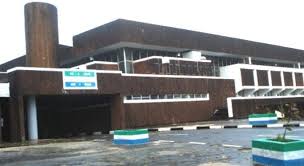Freetown, Sierra Leone – July 1, 2025
Amid growing concerns over the legitimacy of a recent appointment to the National Commission for Persons with Disabilities (NCPD), the Chairman of Parliament’s Appointments and Public Service Committee, Hon. Matthew Sahr N’Yuma, has delivered a firm defense of constitutional procedures and parliamentary authority.
Speaking before the committee in a tense session, Hon. N’Yuma reaffirmed the supremacy of Sierra Leone’s 1991 Constitution, referencing Sections 61 and 171(15), which empower the President to appoint and dismiss officials in public office. He cautioned against attempts to undermine Parliament’s vetting process, emphasizing that no law or correspondence can supersede the Constitution.
“The Constitution is the supreme law of the land. Any other law that contradicts it is void to the extent of the inconsistency,” he declared, reading directly from the constitutional text.
The dispute was sparked by a letter reportedly sent to the Speaker of Parliament, which raised objections to the appointment of a new NCPD Chairman. The letter, according to Hon. N’Yuma, bore questionable authority, having been signed by a Director of Policy rather than the Secretary to the President — the legally designated signatory for state appointments.
“We scrutinized the appointment letters. They must be signed and dated by the Secretary to the President,” Hon. N’Yuma said. “Anything else casts doubt on its legitimacy.”
He warned that efforts to misrepresent or interfere with the committee’s work, whether direct or indirect, could be considered contempt of Parliament under Section 85 of the Constitution.
“You may hold opinions, but those should not infringe upon the legal authority of Parliament. Misleading this committee is not only irresponsible—it could amount to a constitutional offense,” he warned.
Throughout his remarks, Hon. N’Yuma emphasized Parliament’s legal mandate in overseeing executive appointments. He also highlighted that both the Constitution and Parliament’s Standing Orders guide the committee’s vetting process, ensuring fairness, transparency, and accountability.
Calling for calm and constructive engagement, the Chairman urged all stakeholders to refrain from politicizing public appointments or making baseless claims.
“If there are concerns, let them be addressed through due legal process—not through speculation, misinformation, or political pressure,” he advised.
The matter has now been referred to the Speaker’s office for review. While no formal response has been issued regarding the disputed letter, Hon. N’Yuma made it clear that Parliament will not tolerate any attempts to derail its constitutional responsibilities.
His strong remarks come amid growing scrutiny over public appointments, as Parliament seeks to reinforce integrity and lawful procedure in the governance process.
By Feima Sesay



